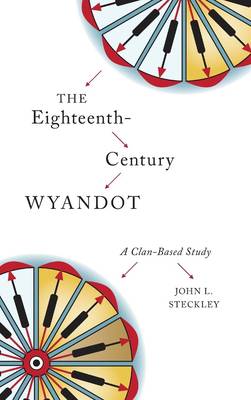
- Retrait gratuit dans votre magasin Club
- 7.000.000 titres dans notre catalogue
- Payer en toute sécurité
- Toujours un magasin près de chez vous
- Retrait gratuit dans votre magasin Club
- 7.000.0000 titres dans notre catalogue
- Payer en toute sécurité
- Toujours un magasin près de chez vous
Description
The Wyandot were born of two Wendat peoples encountered by the French in the first half of the seventeenth century--the otherwise named Petun and Huron--and their history is fragmented by their dispersal between Quebec, Michigan, Kansas, and Oklahoma. This book weaves these fragmented histories together, with a focus on the mid-eighteenth century.
Author John Steckley claims that the key to consolidating the stories of the scattered Wyandot lies in their clan structure. Beginning with the half century of their initial diaspora, as interpreted through the political strategies of five clan leaders, and continuing through the eighteenth century and their shared residency with Jesuit missionaries--notably, the distinct relationships different clans established with them--Steckley reveals the resilience of the Wyandot clan structure. He draws upon rich but previously ignored sources--including baptismal, marriage, and mortuary records, and a detailed house-to-house census compiled in 1747, featuring a list of male and female elders--to illustrate the social structure of the people, including a study of both male and female leadership patterns. A recording of the 1747 census as well as translated copies of letters sent between the Wyandot and the French is included in an appendix.
Spécifications
Parties prenantes
- Auteur(s) :
- Editeur:
Contenu
- Nombre de pages :
- 316
- Langue:
- Anglais
- Collection :
- Tome:
- n° 13
Caractéristiques
- EAN:
- 9781771122009
- Date de parution :
- 01-11-15
- Format:
- Livre broché
- Format numérique:
- Trade paperback (VS)
- Dimensions :
- 152 mm x 229 mm
- Poids :
- 408 g

Les avis
Nous publions uniquement les avis qui respectent les conditions requises. Consultez nos conditions pour les avis.






